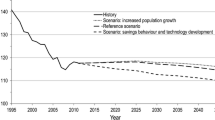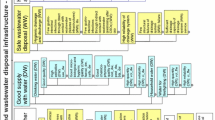Abstract
Water management projects are complex and contain many dimensions, including the nature of the problem, technologicalchallenges, and political relevance. Experts and consultants in water management usually work with a limited set of analysis and project planning methods. This implies that expertsand consultants have a restricted spectrum for bidding on watermanagement projects and that the engagement of a specific expertor consultant introduces a biased approach to water management.To alleviate these limitations, experts and consultants shouldhave a readily accessible collection of analysis and project management methods at their disposal, coupled with guidelinesfor combining these methods to best approach a water managementproject. In this paper we propose a taxonomy for classifying methods used in water management. Using this taxonomy, we derivea Project Management Specification Model (PMSM) to help expertsselect, combine, and operationalize methods to match best therequirements posed by a project. The taxonomy and PMSM were derived and validated by analyzing more than 90 methods togetherwith experts in the field of water management, and by using themwithin two new project proposals made by an engineering company.We could conclude that PMSM's broad view on water managementhelps experts and consultants choose flexible analysis and project management approaches, and that it increases the involvement of, and acceptance by, all parties involved in water management.
Similar content being viewed by others
References
Beroggi, G. E. G.: 1999, Decision Modeling in Policy Management - An Introduction to the Analytic Concepts, Kluwer Academic Publishers, Boston.
Enserink, B.: 2000, A quickscan for infrastructure planning: screening alternatives through interactive stakeholder analysis, Impact Assessment and Project Appraisal 18(1), 15–22.
Geldof, G. D.: 1997, Coping with uncertainties in integrated urban water management, Water Science and Technology 36(8-9), 265–269.
Geldof, G. D.: 1995, Adaptive water management: integrated water management on the edge of Chaos, Water Science Technology 32(1), 7–13.
Grigg, N. S.: 1997, Systemic analysis of urban water supply and growth management, J. of Urban Planning and Development 123(2), 23–34.
Larsen, T. A. and Gujer, W.: 1997, The concept of sustainable urban water management, Water Science and Technology 35(9), 3–10.
Van-Rooy, P. T. J. C., De-Jong, J.; Jagtman, E., Hosper, S. H. and Boers, P. C. M.: 1998, Comprehensive approaches to water management, Water Science and Technology 37(3), 201–208.
Veldkamp, R. G., Hermann, T., Colandini, V., Terwel, L. and Geldof, G. D.: 1997, A decision network for urban water management, Water Science and Technology 36(8-9), 111–115.
Author information
Authors and Affiliations
Corresponding author
Rights and permissions
About this article
Cite this article
Bernhardi, L., Beroggi, G.E.G. & Moens, M.R. Sustainable Water Management through Flexible Method Management. Water Resources Management 14, 473–495 (2000). https://doi.org/10.1023/A:1011105008526
Issue Date:
DOI: https://doi.org/10.1023/A:1011105008526




